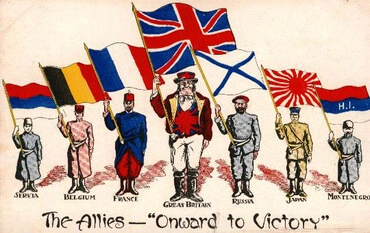1
Tada Josif ne mogući se uzdržati pred ostalima koji stajahu oko njega, povika: Izađite svi napolje. Tako ne osta niko kod njega kad se Josif pokaza braći svojoj.
2
Pa briznu plakati tako da čuše Misirci, ču i dom Faraonov.
3
I reče Josif braći svojoj: Ja sam Josif; je li mi otac još u životu? Ali mu braća ne mogahu odgovoriti, jer se prepadoše od njega.
4
A Josif reče braći svojoj: Pristupite bliže k meni. I pristupiše; a on reče ja sam Josif brat vaš, kog prodadoste u Misir.
5
A sada nemojte žaliti niti se kajati što me prodadoste ovamo, jer Bog mene posla pred vama radi života vašeg.
6
Jer je većdve godine dana glad u zemlji, a biće još pet godina, gde neće biti ni oranja ni žetve.
7
A Bog me posla pred vama, da vas sačuva na zemlji i da vam izbavi život izbavljenjem prevelikim.
8
I tako niste me vi opravili ovamo nego sam Bog, koji me postavi ocem Faraonu i gospodarem od svega doma njegovog i starešinom nad svom zemljom misirskom.
9
Vratite se brže k ocu mom i kažite mu: Ovako veli sin tvoj Josif: Bog me je postavio gospodarem svemu Misiru, hodi k meni, nemoj oklevati.
10
Sedećeš u zemlji gesemskoj i bićeš blizu mene, ti i sinovi tvoji i sinovi sinova tvojih, i ovce tvoje i goveda tvoja i šta je god tvoje.
11
I ja ću te hraniti onde, jer će još pet godina biti glad, da ne pogineš od gladi ti i dom tvoj i šta je god tvoje.
12
A eto vidite očima svojim, i brat moj Venijamin svojim očima, da vam ja iz usta govorim.
13
Kažite ocu mom svu slavu moju u Misiru i šta ste god videli; pohitajte i dovedite ovamo oca mog.
14
Tada pade oko vrata Venijaminu bratu svom i plaka. I Venijamin plaka o vratu njegovom.
15
I izljubi svu braću svoju i isplaka se nad njima. Potom se braća njegova razgovarahu s njim.
16
I ču se glas u kući Faraonovoj, i rekoše: Dođoše braća Josifu. I milo bi Faraonu i slugama njegovim;
17
I reče Faraon Josifu: Kaži braći svojoj: Ovako učinite: natovarite magarce svoje, pa idite i vratite se u zemlju hanansku,
18
Pa uzmite oca svog i čeljad svoju, i dođite k meni, i daću vam najbolje što ima u zemlji misirskoj, i ješćete najbolje obilje ove zemlje.
19
A ti im zapovedi: Ovako učinite: uzmite sa sobom iz zemlje misirske kola za decu svoju i za žene svoje, i povedite oca svog i dođite ovamo;
20
A na pokućstvo svoje ne gledajte, jer šta ima najbolje u svoj zemlji misirskoj vaše je.
21
I sinovi Izrailjevi učiniše tako; i Josif im dade kola po zapovesti Faraonovoj; dade im i brašnjenice na put.
22
I svakome dade po dve haljine, a Venijaminu dade trista srebrnika i petore haljine.
23
A ocu svom posla još deset magaraca natovarenih najlepših stvari što ima u Misiru, i deset magarica natovarenih žita i hleba i jestiva ocu na put.
24
Tako opravi braću svoju, i pođoše; i reče im: Nemojte se koriti putem.
25
Tako se vratiše iz Misira, i dođoše u zemlju hanansku k Jakovu ocu svom.
26
I javiše mu i rekoše: Još je živ Josif, i zapoveda nad svom zemljom misirskom. A u njemu srce prenemože, jer im ne verovaše.
27
Ali kad mu kazaše sve reči Josifove, koje im je Josif rekao, i vide kola, koja posla Josif po oca, tada ožive duh Jakova oca njihovog;
28
I reče Izrailj: Dosta mi je kad je još živ sin moj Josif; idem da ga vidim dokle nisam umro.







